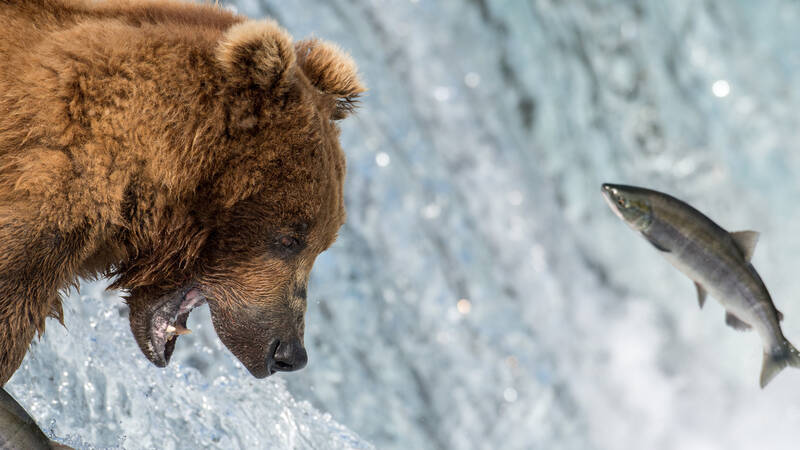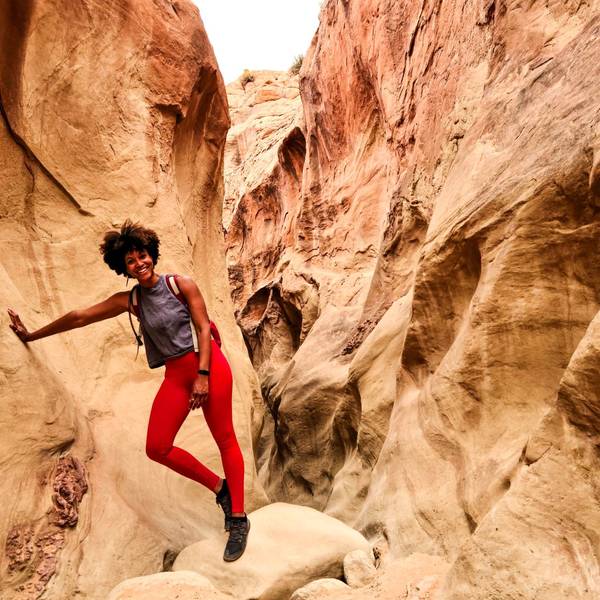2023 marked incredible progress in protecting national parks. NPCA celebrates the many victories — some of which we won after decades of hard work by park advocates around the country.
Here’s a breakdown of some of the best things that happened for parks this year.
1. Emmett Till and Mamie Till-Mobley National Monument established.
The murder of Emmett Till was one of the most horrific hate crimes of our time, and Mamie Till-Mobley’s work to honor her son’s memory impacted the Civil Rights Movement in a tremendous way.
For decades, our team and supporters worked alongside the Till family, foot soldiers from the Mississippi Civil Rights Movement, and champions nationwide to advocate on behalf of preserving this history. In July, the Emmett and Mamie Till-Mobley National Monument was finally established.
The monument is spread across three locations: Glendora and Sumner, Mississippi, and Chicago, Illinois. Each location offers educational interpretation and opportunities for conversation that can support healing of racial divides.
2. Grand Canyon and surrounding lands safeguarded.
In August, Baaj Nwaavjo I'tah Kukveni - Ancestral Footprints of the Grand Canyon National Monument was established in Arizona. This designation protects nearly 1 million acres of Indigenous cultural connections, outdoor recreational experiences, endangered species and vital water sources and keeps them safe from uranium mining and other dangerous development.
3. Irreplaceable landscapes protected from harmful development.
- The Biden administration created a 10-mile protection zone around Chaco Culture National Historical Park in New Mexico that shields this culturally significant landscape from new leasing and mining claims on public lands for 20 years.

An Alaskan brown bear tries to catch sockeye salmon at Brooks Falls in Katmai National Park and Preserve.
© Eei_tony | Dreamstime.com- The Environmental Protection Agency rejected a permit for the proposed Pebble Mine in Alaska after years of advocacy work. The mine would have jeopardized the highest concentration of brown bears in the world, along with the world-class salmon fisheries that are the bears’ primary food source.
4. Avi Kwa Ame National Monument designated.
Earlier this year, President Biden designated Avi Kwa Ame as a national monument after over a decade of advocacy by Tribal leaders and local residents.
Avi Kwa Ame (Spirit Mountain and the surrounding landscape) in Nevada establishes a network of protected lands from the California Desert to the Colorado Plateau, where bighorn sheep, desert tortoises, golden eagles and some of the world’s oldest Joshua trees reside. The land is rich with biodiversity and sacred to numerous Indigenous Tribes in the area.
5. Our network of park advocates expanded.
Parks are for everyone, and their preservation is a duty we all share.
This year, NPCA made progress in building the next generation of park protectors. Not only did we launch two new Young Leaders Councils in our Sun Coast and Southeast regions that empower young adults to be advocates and ambassadors for parks, we supported college student advocates at the annual Everglades Coalition Conference, where students learned about protection and restoration of national parks in the Greater Everglades Ecosystem.
2023 marked our third annual Pride in our Parks campaign. We highlighted LGBTQ+ park stories both online and in person, furthering our work to ensure that parks are inclusive and safe spaces for all.
We also hosted a veterans appreciation night with the Michigan State University Veteran Services Department to introduce veterans to our Yellowstone pronghorn fencing program, in which landowners, public land managers and volunteers work together to limit the obstacles Yellowstone pronghorn face during migration.
6. Our fight for future park protections continued.
Conservationists, watermen, fishermen and advocates worked together to introduce the bipartisan Chesapeake National Recreation Area Act. If this legislation passes, it would mean protection for the world’s largest estuary and broadened public access to the Bay’s shores and waters.
NPCA fought — and continues to fight — alongside park protectors all over the country to revoke the permits for the Ambler industrial mining road. The proposed 211-mile road threatens to invade the vast wilderness of Alaska’s Brooks Range, cutting through Gates of the Arctic National Preserve — impacting dozens of Alaska Native villages and the habitats of a variety of wildlife species.
What’s in store for 2024?
We’re ready to tackle budget cuts, fight for park funding, advocate for the restoration and preservation of over a dozen critical landscapes — and so much more. NPCA and park supporters all over the country will continue working together to make a difference.
If you’d like to join us in fighting for the future of our parks, raise your voice or donate.
About the author
-
 Chyla Anderson Online Engagement Manager
Chyla Anderson Online Engagement ManagerAs Online Engagement Manager, Chyla works to engage park supporters at every stage of their journey, empowering them to form long-lasting relationships with our parks.


